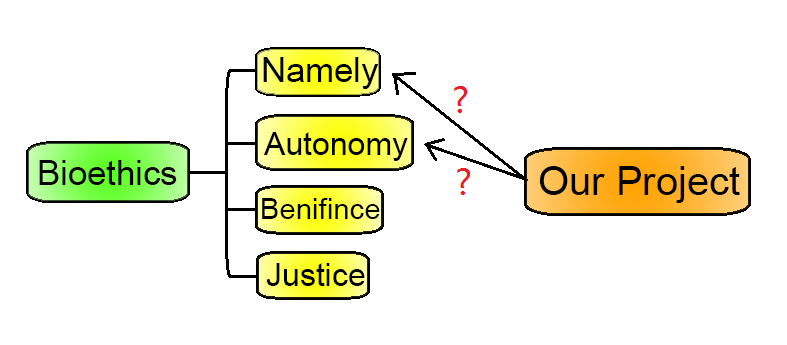Bioethics
Definition
Bioethicists ask the questions of good and bad, right and wrong in the context of modern medicine and healthcare. They draw on a pluralistic plethora of traditions, both secular and religious, to spawn civil discourse on contentious issues of moral difference and others on which most people agree. Bioethicists foster public knowledge and comprehension both of moral philosophy and scientific advances in healthcare. They note how medical technology can change the way we experience the meaning of health and illness and, ultimately, the way we live and die(seeing in http://practicalbioethics.org/what-is-bioethics).
One of the first areas addressed by modern bioethicists was that of human experimentation. The National Commission for the Protection of Human Subjects of Biomedical and Behavioral Research was initially established in 1974 to identify the basic ethical principles that should underlie the conduct of biomedical and behavioral research involving human subjects. However, the fundamental principles announced in the Belmont Report (1979) [1]—namely, autonomy, beneficence and justice—have influenced the thinking of bioethicists across a wide range of issues. Others have added non-maleficence, human dignity and the sanctity of life to this list of cardinal values.
Interview

To know what exactly the ethics problems our project might face, we interviewed Professor Liang R., the committeeman of Bioethics Committee of SJTU. Professor Liang said our project barely had conflicts against ethics. “The biggest and I’d say the only ethics problem of your project is where your urine samples come from,” said Professor Liang, “You will certainly use samples from humans, especially patients. What you should guarantee is let the patients know you take their urine as samples and what their urine will be used for. It should follow the principle of namely and autonomy.”
Another ethical problem we may face is that we reconstructed human's GPCR and yeasts'. “Maybe there’s a clone ethics when you brought the gene from human beings into yeast,” Liang said, “but I don’t consider it a problem because if you need to sense human’s epinephrine,how could you do it without introducing a human’s protein?” Besides, she told us that cloning ethics are always related to those gene changes in animal cells, but not microorganisms such as yeast.

Reference
- [1]The Belmont Report, 1979




